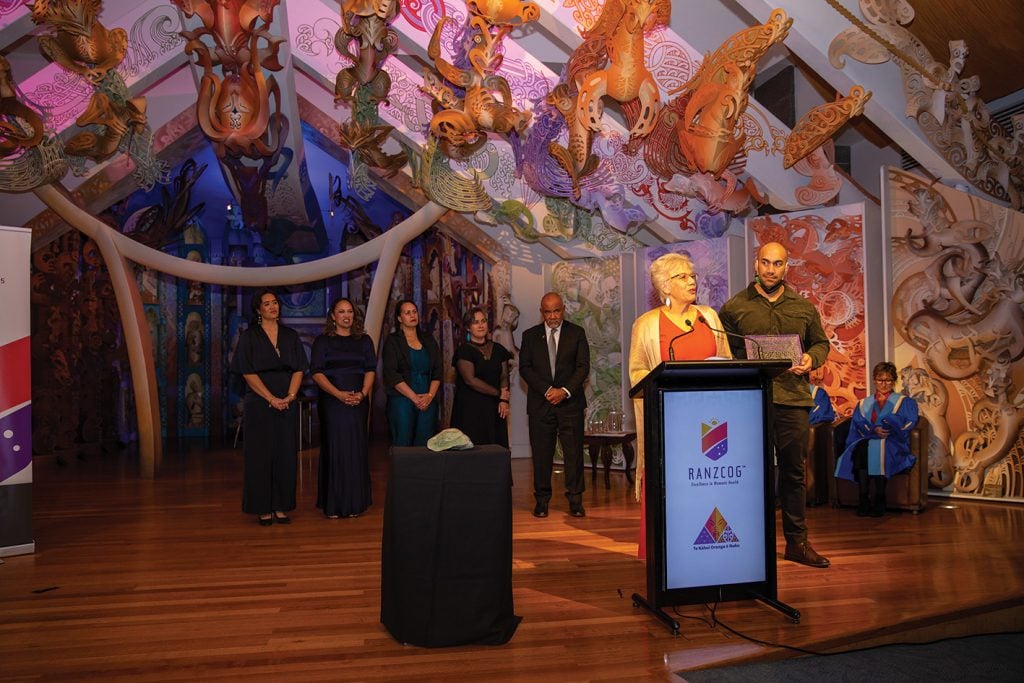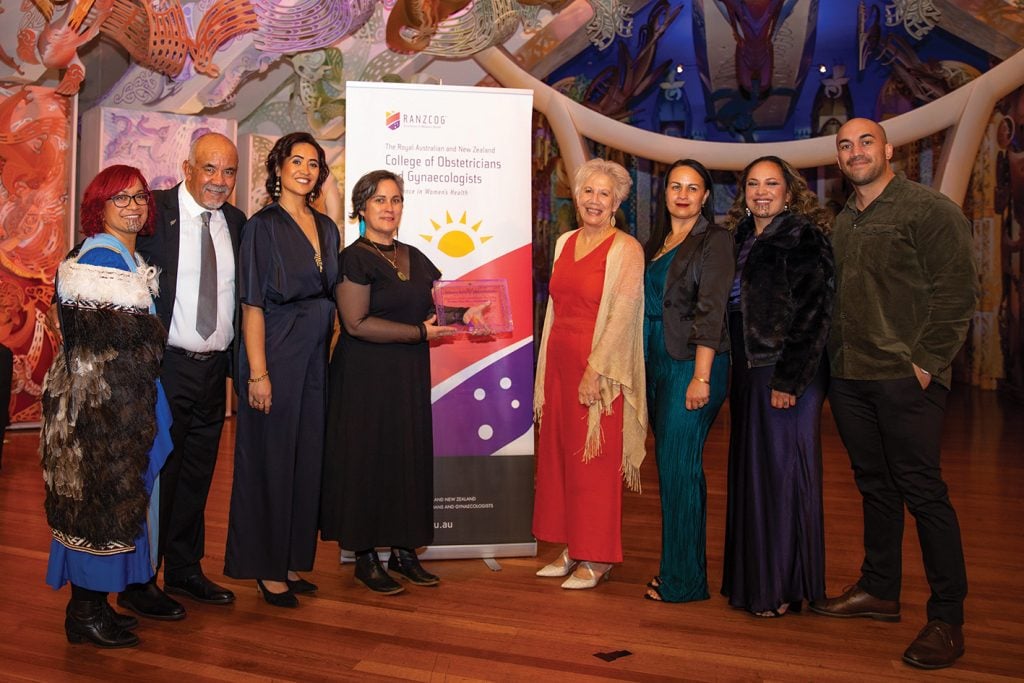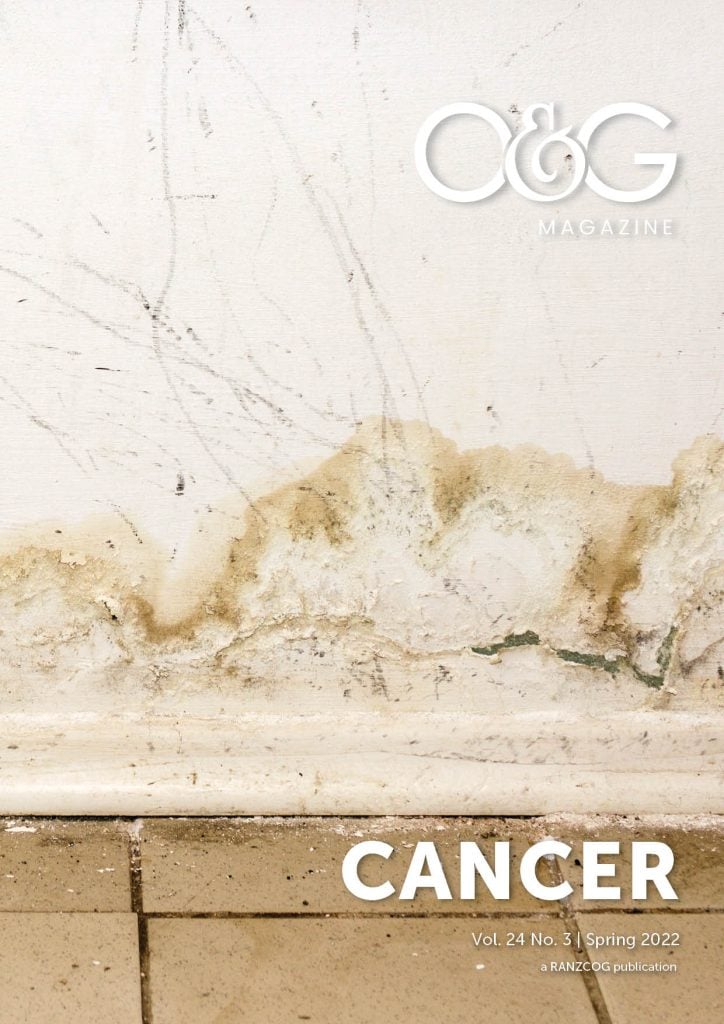In June, RANZCOG Aotearoa held their Fellowship Elevation and Award Ceremony. The night was filled with amazing achievements of our new Fellows, as well as our award winners. One award presented was RANZCOG’s Māori Women’s Health Award, which is awarded to individuals, or a group, that has made a significant contribution to Māori women’s health outcomes. Due to COVID, there was a backlog in awards to be presented. Our 2020 Award winners, Smear your Mea, were presented their award for their incredible work. Talei Morrison was diagnosed with advanced cervical cancer aged 41. She found a lack of resources that resonated with her as a wahine Māori. Because of this, she launched an extremely successful health campaign to encourage wāhine Māori to get their cervical smear test.
The aim of the Smear Your Mea campaign is to protect the health and whakapapa or genealogy of wāhine Māori, to safeguard the health of future generations. Their mission is to raise awareness and promote advocacy and support through the detection, treatment and prevention of cervical cancer for wāhine Māori. The Smear Your Mea campaign continues to bring cervical screening to the people at many communities and kaupapa Māori events – public holiday events, marae days, community health days, Kapa haka, Waka Ama sporting fixtures.
In 2019, Talei’s brother Eruera, Chair of the Smear Your Mea Trust, presented to the Māori Affairs Select Committee’s Inquiry into health inequities for Māori. They reported that Talei was failed by the current health system framework and advocated for policy change. The Committee’s final report referenced Talei’s journey, recommended changes to the national screening program, and also recommended practitioners undergo cultural safety training for their professional development.
The Smear Your Mea campaign was nominated for the RANZCOG Māori Women’s Health award to acknowledge this inspirational mana wahine, who even through her terminal illness was determined to advocate for wāhine Māori. We also acknowledge her whānau who continue to drive this community-funded campaign in her memory.

Prof Sandra Morrison accepting the award on behalf of Smear Your Mea
The Smear Your Mea campaign is an exemplar of how we can provide culturally safe education, advocacy, and treatment to our Māori whānau, creating positive health experiences and improving health inequities. There will be several changes when the new primary screening test is introduced. Self-testing will be an option. A vaginal swab can be taken privately at a health clinic, or it can be taken by a clinician if preferred. The health care provider can also arrange for the tests to be done out of clinic, for example, at home, or in a non-clinical setting in the community. A speculum exam is not needed for the new test. However, if the test shows HPV is present a follow-up test will be needed.
The Ministry of Health will be looking at ways to make screening even more accessible in the future, which may include a future approach of a national mail-out of self-testing kits, if they are found to work safely and well for participants.
Smear your Mea were our 2020 Māori Women’s Health Award winners alongside Prof Bev Lawton (Ngāti Porou). Prof Bev Lawton was nominated for her mahi as the principal investigator of a community-based Kaupapa Māori research project called He Tapu Te Whare Tangata, designed to improve access to and uptake of cervical cancer screening in a way more suited to Māori needs. This research was also integral in getting self-testing for HPV recognised and agreed to for wāhine.

(Left to right): Dr Kasey Tawhara, Te Ururoa Flavell, Nadine Riwai, Prof Sandra Morrison, Elaine Kameta, Tiria Waitai, Eruera Keepa.
Related article
- Smear Your Mea campaign update (People of the Land issue, Autumn 2023)






Leave a Reply